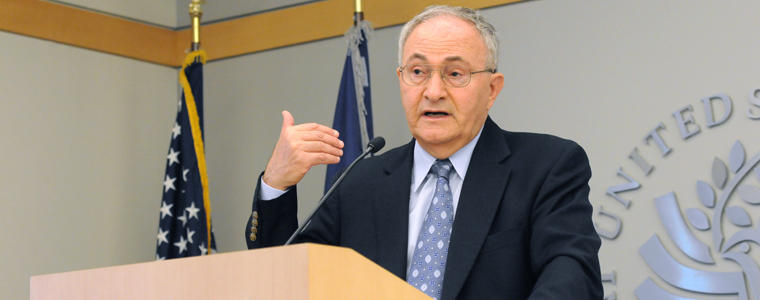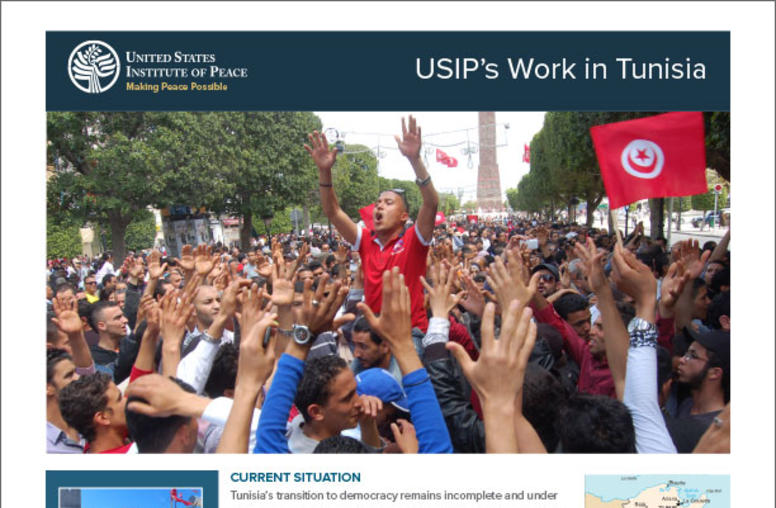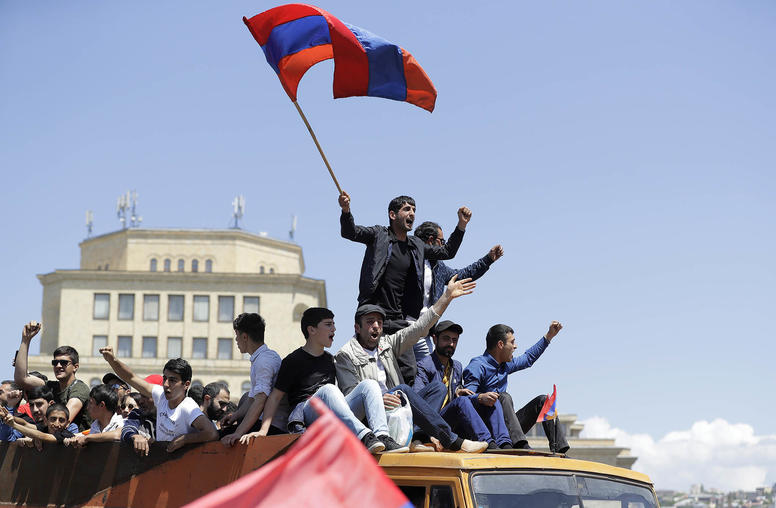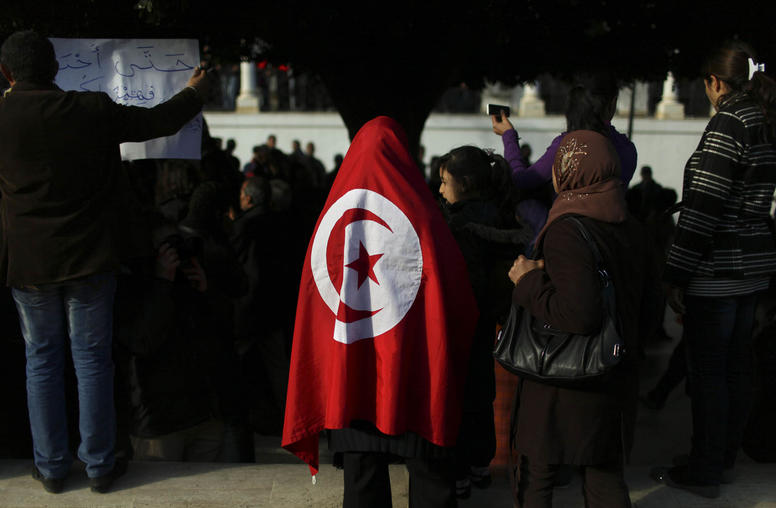USIP-Wilson Center Series on Arab Spring Impacts Concludes
In the last of a five-part series of papers and meetings on “Reshaping the Strategic Culture of the Middle East,” regional specialist Adeed Dawisha told an audience at the U.S. Institute of Peace (USIP) on June 12 that, contrary to some expectations, no clear political or ideological breach has opened up between the revolutionary states of the Arab Spring and the region’s status quo powers.

The Arab Spring has produced “little palpable change” so far in spreading “robust democratic structures” throughout the region, said Dawisha, a political scientist at Miami University in Ohio and author most recently of “The Second Arab Awakening: Revolution, Democracy, and the Islamist Challenge from Tunis to Damascus.” Dawisha’s paper has been published jointly by USIP and the Middle East program at the Woodrow Wilson Center for International Scholars; as with other papers in the series, its views are his own and not those of either institution.
“If there was any fear [by status quo powers] that the events of the spring of 2011 would tilt the strategic balance in the direction of the revolutionary states…that concern must have subsided considerably by the spring of 2013,” Dawisha writes in his paper.
At the USIP meeting, he said it would be “a little harsh” to describe the Arab Spring, also known as the Arab Awakening, as exerting no impact on political change outside of the revolutionary countries. He noted political reforms in three countries. Morocco’s constitution was revised, with the king ceding some of his powers to parliament. Jordan’s king encouraged reforms, leading to an independent electoral commission. Even in Saudi Arabia, women were granted the right to vote in the upcoming 2015 municipal elections, and some took seats in the kingdom’s Consultative Council.
But overall, Dawisha suggested that to date the Arab Awakening has been more successful at transferring political violence and sectarianism than democratic reform. “There have been some changes. These are really anemic changes compared to the hopes people had in the Arab revolutions,” he said. “The kings and emirs of status quo powers needn’t lie awake at night.”
In his paper, Dawisha writes that “any reform undertaken by Arab kings was born out of fear of the idea of freedom, which of late had become far more incendiary and much more contaminating than in the past because of the extraordinary advances in the fields of communications and information technology.” But Dawisha states that the region is lacking a “positive ‘demonstration effect’”—a “democratic success, preferably fortified by palpable economic growth…that would either ignite democratic revolutions in the status quo countries or, at a minimum, force the recalcitrant authoritarian leaders of these countries to embark on a process of meaningful liberal reforms.”
Though longtime dictators were deposed in Libya and Yemen, tribal and regional loyalties are stymieing political compromise, and state institutions have been unable to establish political control over armed groups, Dawisha writes. In Syria, a peaceful uprising has turned into a bloody civil war, and the country “is being torn apart.” And while Tunisia will be recalled as the birthplace of the Arab Awakening, he notes, the would-be demonstration effect of a democratic Egypt—a country long seen as the heart of the Arab world—has been tempered by two Islamist parties, including the governing Freedom and Justice Party, whose leader and the country’s president, Mohamed Morsi, has shown what Dawisha calls “authoritarian proclivities.” Morsi unilaterally decreed new powers for himself, and the writing of a new constitution fell to Islamists. They have been reluctant to compromise with secularists and have been attacking laws that instituted protections for women’s rights, Dawisha writes.
Dawisha added that some of the post-revolutionary Arab states are also “living off the largesse from the status quo powers” as their transitions continue. In his paper, Dawisha notes that since Morsi came to power Egypt has received $8 billion from Qatar and is expecting $4 billion from Iraq and $2.5 billion from Saudi Arabia. “It is difficult to bite the hand that is feeding you,” he said at the June 12 meeting.
Iran has benefitted strategically amid the Arab Spring, Dawisha said, and it is aiming to build new, closer ties to parts of the Arab world. In particular, Iran and Egypt are attempting to “create some kind of alliance” to the disadvantage of the United States, a shift that did not occur under the long rule of former Egyptian leader Hosni Mubarak, he said.
The Egyptian outreach to Iran, led by Morsi, “represents a real policy option” for Cairo, he added. “There is no love lost between the Islamists and the Americans,” he said. However, there are factors constraining the new relationship: Egypt’s Islamists “abhor” the Shiite creed of Iran, meaning that warmer Egyptian-Iranian relations are likely to “grow in a way of not much importance” to the United States, Dawisha said.
Further resources:
- A January 2013 news feature on the launch of the joint Wilson Center-USIP project.
- USIP’s Daniel Brumberg and Steven Heydemann wrote the first paper in the series: Global Authoritarians and the Arab Spring: New Challenges for U.S. Diplomacy



